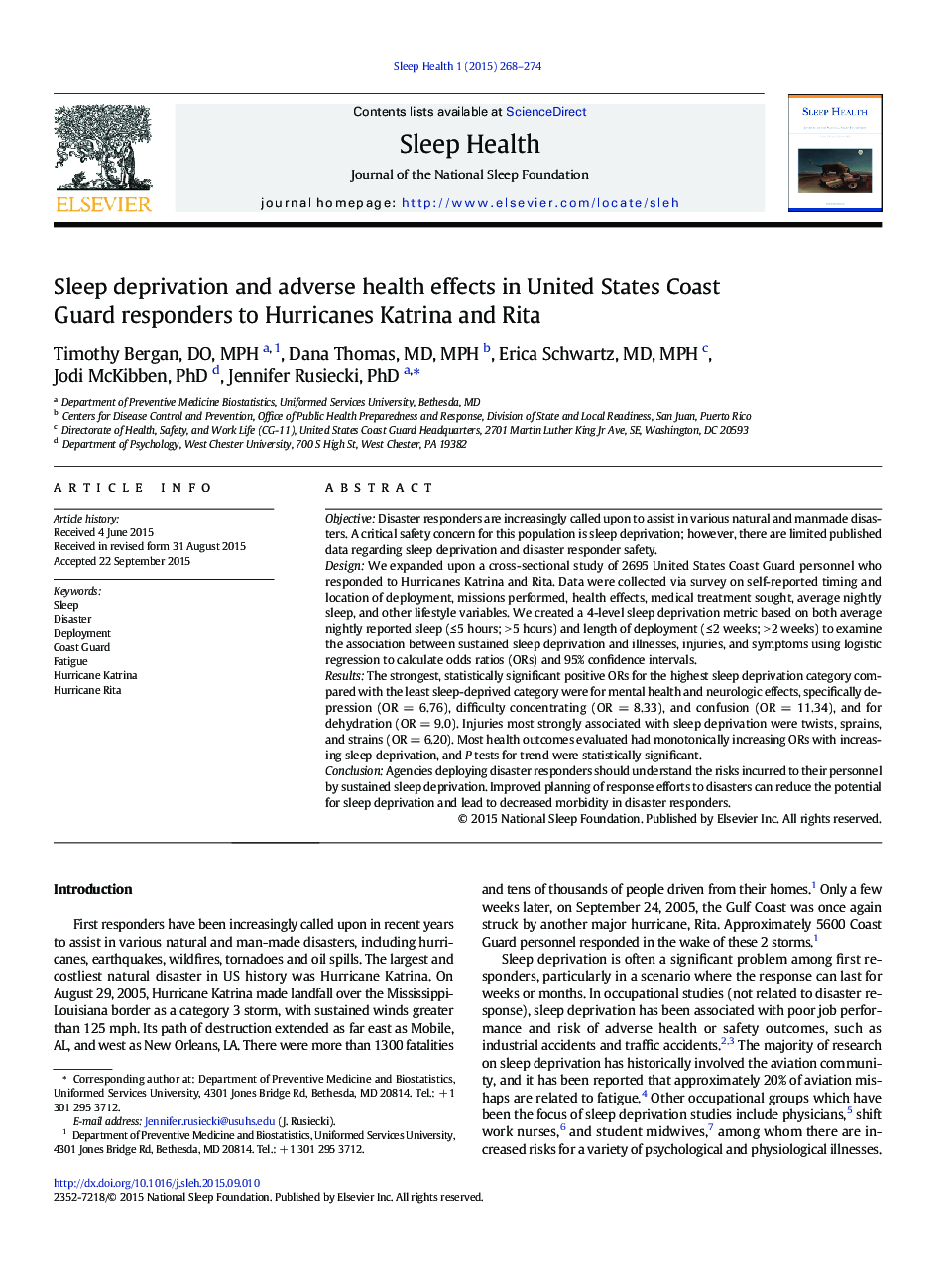| کد مقاله | کد نشریه | سال انتشار | مقاله انگلیسی | نسخه تمام متن |
|---|---|---|---|---|
| 916286 | 918834 | 2015 | 7 صفحه PDF | دانلود رایگان |
ObjectiveDisaster responders are increasingly called upon to assist in various natural and manmade disasters. A critical safety concern for this population is sleep deprivation; however, there are limited published data regarding sleep deprivation and disaster responder safety.DesignWe expanded upon a cross-sectional study of 2695 United States Coast Guard personnel who responded to Hurricanes Katrina and Rita. Data were collected via survey on self-reported timing and location of deployment, missions performed, health effects, medical treatment sought, average nightly sleep, and other lifestyle variables. We created a 4-level sleep deprivation metric based on both average nightly reported sleep (≤ 5 hours; > 5 hours) and length of deployment (≤ 2 weeks; > 2 weeks) to examine the association between sustained sleep deprivation and illnesses, injuries, and symptoms using logistic regression to calculate odds ratios (ORs) and 95% confidence intervals.ResultsThe strongest, statistically significant positive ORs for the highest sleep deprivation category compared with the least sleep-deprived category were for mental health and neurologic effects, specifically depression (OR = 6.76), difficulty concentrating (OR = 8.33), and confusion (OR = 11.34), and for dehydration (OR = 9.0). Injuries most strongly associated with sleep deprivation were twists, sprains, and strains (OR = 6.20). Most health outcomes evaluated had monotonically increasing ORs with increasing sleep deprivation, and P tests for trend were statistically significant.ConclusionAgencies deploying disaster responders should understand the risks incurred to their personnel by sustained sleep deprivation. Improved planning of response efforts to disasters can reduce the potential for sleep deprivation and lead to decreased morbidity in disaster responders.
Journal: Sleep Health - Volume 1, Issue 4, December 2015, Pages 268–274
